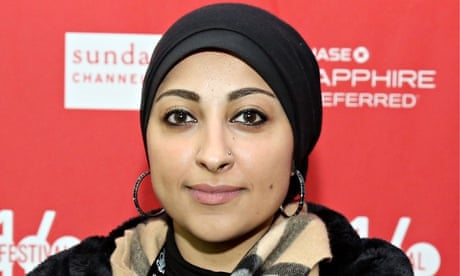Bahrain is under pressure to free a prominent human rights activist whose detention is providing a sharp focus for advocates of democratic change in a state that enjoys close political support from the west.
Maryam al-Khawaja was arrested when she flew to Manama on 30 August and was charged with assaulting police officers after refusing to hand over her phone.
She was in Bahrain in an act of solidarity with her father, who is on hunger strike and one of 13 high-profile dissidents jailed for organising protests in the Gulf state.
Authorities postponed her trial on Sunday and ordered that she remain in custody for 10 days, despite calls from the UN and many international organisations for her release.
The crisis in Bahrain has long been overshadowed by far bloodier and more dramatic events in Syria, Iraq and Egypt, but the problems exposed when the island state experienced its Pearl revolution in 2011 in the early days of the Arab spring have not gone away.
Protests – accompanied by tyre-burning and petrol bombs, and often met with security forces firing teargas and rubber bullets – continue in Shia villages, with no sign that King Hamad is prepared to implement sufficient reforms to satisfy his critics.
The Bahraini government and supporters are talking up preparations for a parliamentary election in November. But analysts predict that the polls will be boycotted by al-Wefaq and other opposition parties and that it will suit government hardliners if that happens.
"The government wants to create an image of people participating and that everything is back to normal, even if only 5-10% of voters take part," Nabeel Rajab, Bahrain's leading human rights activist, told the Guardian. "But we will have another four years of problems if we don't solve them before elections."
Rajab was freed in May after serving a two-year sentence for participating in "illegal gatherings" in 2011.
Bahrain stands out as the first example of an Arab country where popular protests were crushed – with the assistance of neighbouring Saudi Arabia and the acquiescence of the US and Britain, whose military, strategic and business interests wed them to a status quo in which the Sunni Al Khalifa dynasty rules over a disenfranchised Shia majority.
Key reforms recommended by the Bahrain independent commission of inquiry in 2012 have not been implemented, leaving the political system unrepresentative and the security forces unaccountable. The crown prince, once the hope of reformists, appears to have been sidelined by the hardline prime minister, in office for more than 40 years.
Dialogue with the opposition has gone nowhere. Another problem, argues Rajab, is a lack of international attention compounded by the refusal of the authorities to issue visas to journalists unless they are covering the annual Formula One grand prix.
Activists are routinely vilified as agents of foreign powers. The Khawajas, complained a writer to the pro-government Gulf Daily News, "are not human rights defenders. They are devoted followers of [Iran's Ayatollah Ali] Khamenei and [leader of the Lebanese Hezbollah Hassan] Nasrallah who also support sectarian division through violence in Bahrain. Now refined and financed by Iran, the US and the UK, they have just one goal in mind: to remove the Al Khalifa monarchy."
Rajab, who was detained on arrival at Heathrow, has urged the UK Foreign Office to designate Bahrain as a "country of concern" for human rights, in line with a recommendation by 53 British MPs. He argues that the British government is guilty of double standards because it has stepped in to pick up business opportunities lost by more critical EU partners.
The Foreign Office insists that its reporting on Bahrain "strikes an appropriate balance between the undoubted progress made in some areas and our continuing concerns in others".
Rajab, Khawaja and supporters are not convinced by the claim that Bahrain is making substantial progress in respect of political reforms.
It is a measure of the hardening mood in Manama – and elsewhere in the Gulf – that in July the government expelled the US assistant secretary of state for human rights, Tom Malinowski, because of his willingness to meet opposition leaders. Officials in Washington rarely criticise the government in Manama, home to the US Navy's Fifth Fleet. But when the state department announced last month that a second visit had been arranged for Malinowski, Bahrain flatly denied it.
Rajab, no fan of monarchies, says Jordan and Morocco have done better than his own country in responding to popular demands for change. But Britain, the US and other western governments need to play their role too, he suggests.
Joe Stork, of Human Rights Watch, said: "Countries that say they support human rights and democratic reforms in Bahrain have a responsibility to speak up now."
